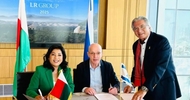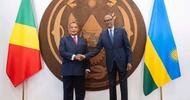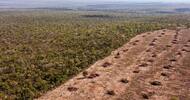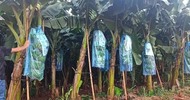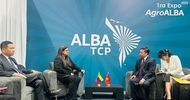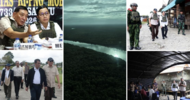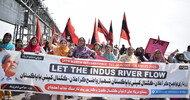Recognizing that land is increasingly becoming a good that is traded internationally, this BMZ position paper analyses driving forces, risks and opportunities for developing countries.
Indigenous communities are under threat from a recent spurt of investors and multinational companies interested in putting their money into Kenyan oil, mining, wind farms and agribusiness projects.
The emerging resistance against MIFEE is located within a national (and international) alliance against land grabs and within the indigeous movement against Indonesian occupation and exploitation.
Contract covers the lease of 25,000 ha in the Regional State of Gambela for a period of 40 years, with option for renewal, for the production of sugar cane.
Covers 10,000 ha in Gambela Regional State for the production of rice, for an initial period of 50 years, with option for renewal.
Contract is for 10,000 ha in the Regional State of Gambela for a period of 25 years, with option for renewal.
Contract covers the lease of 27,000 ha in the Regional State of Gambela for a period of 25 years, with option for renewal.
Contract covers the lease of 25,000 ha in the Regional State of Gambela for a period of 25 years, with option for renewal.
Contract covers the lease of 3,012 ha in the Gambela Regional State for a period of 50 years, with option for renewal.
Private corporations from Asian and Middle Easter countries are facing Africa’s
virgin lands to secure their population’s food needs. Ethiopia is in the forefront
of African states offering fertile land for long-term lease to these corporations
and states. This
A long term land lease (25 000 ha) for cotton farming in Amhara and Benishangul Gumuz regions for a period of 50 years (renewable)
- The Oakland Institute
-
25 December 2009
Special issue of World Development suggests a key feature of Brazilian and Chinese engagements in African agriculture is the role of state–business relations in shaping and steering development, suggesting new forms of developmentalism.
- World Development
-
10 May 2016
The first issue of Development 54 starts the one year debate on sustainability by looking at the dilemma of the current global land grabs in Africa, Asia and Latin America.
Communities affected by Maryland Oil Palm Plantation in southern Liberia have called on banks to refrain from joining a $1.5 billion syndicated loan for the palm oil giant Wilmar International. They now been accused of being anti-development and opposing the newly elected Liberian government.
- Inclusive development
-
25 July 2018
A formal complaint filed to Organization for Economic Cooperation and Development (OECD) against Australian ANZ Bank. The complaint was lodged on behalf of 681 families who were forcibly displaced.
- Inclusive Development
-
07 October 2014
Paper for the International Fund for Agricultural Development's Governing Council meeting
- International Fund for Agricultural Development
-
19 February 2009
Special issue of the journal Development and Change
- Development and Change
-
21 Mar 2013
Unjust Enrichment: How the IFC Profits from Land Grabbing in Africa, new report by Inclusive Development International, Bank Information Center, Accountability Counsel, Urgewald and the Oakland Institute.
Most of the current and past conflicts over Dominion Farms’ development of the Yala swamp can be traced back to three structural problems: poor communication, cultural and social misunderstanding and political involvement.
- State of Affairs
-
10 June 2011
"We support continued efforts to develop principles for investment in the agricultural sector undertaken by the World Bank, regional development banks, FAO, UNCTAD, and IFAD," say G8 heads of state.
- Canadian Press
-
26 June 2010
New factsheet from ActNowPNG breaks down 6 myths used to justify the privatisation of customary land, showing how it's not about development but about profits for corporations
NGOs call on the CDC Group and all the development banks involved in the Feronia-PHC oil palm plantations to publicly issue a clear statement of support for the mediation process and to ensure the security of participating community members.
- RIAO et al.
-
25 November 2019
The National Catholic Secretariat in collaboration with Caritas Ghana and the Centre for Indigenous Knowledge and Development has launched a joint report on ‘land grabbing’ in Ghana.
- Ghana News Agency
-
24 August 2016
A new Open Access Special Issue in World Development based on our work on the changing role of China and Brazil in Africa’s agriculture is now available
Canadian company developing plantations in the DRC announces new financing from a syndicate of European development funds, backed by Germany, Netherlands, Belgium, Switzerland, Sweden and the UK.
Japanese NGOs’ fact-finding on ProSAVANA, an agricultural development program implemented in Mozambique by Japanese Official Development Assistance.
- Africa Japan Forum
-
05 December 2014
A major reason for Japan's investment and agricultural land development are the moves being made by China.
- Asahi Shimbun
-
13 January 2014
For the world’s people to have secure access to the quantity and quality of food needed for a decent life, the land grabs and the development of large, highly mechanized factory farms must stop.
- Monthly Review
-
02 November 2013
Two new reports from the Oakland Institute show how Western development assistance is supporting forced evictions and massive violations of human rights in Ethiopia.
- Oakland Institute
-
17 July 2013
BRICS states, except Russia, are enhancing and facilitating land grabs abroad in a way that is inconsistent with their proclamations of sustainable development, cooperation solidarity, and respect of national sovereignty.







